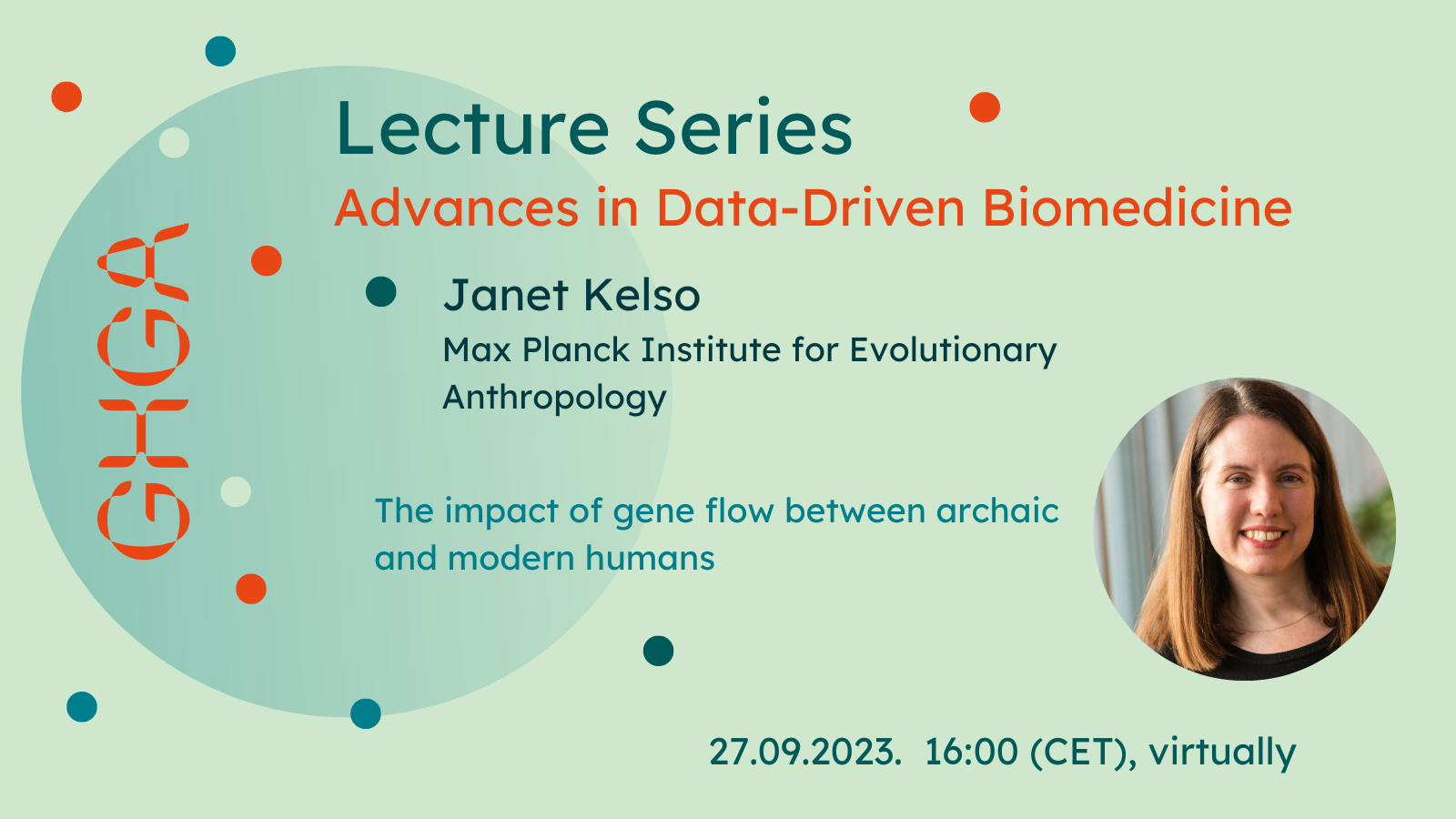GHGA Lecture Series: Janet Kelso (virtual)
- 27 Sep 2023
Janet Kelso from the Max Planck Institute for Evolutionary Anthropology will talk at the GHGA lecture series ("Advances in Data-Driven Biomedicine") on September 27, 2023 about "The impact of gene flow between archaic and modern humans".
Abstract:
The genomes of archaic and early modern humans offer a unique window into their histories. However, the sequencing and analysis of DNA from archaic humans is complicated by DNA degradation, chemical modifications and contamination. Recent technological advances have made it possible to recover nuclear DNA sequences from a number of archaic and early modern humans and a number of important insights have been obtained from the whole genome sequences that have been generated. Comparison of archaic genome sequences to the genome sequences of present-day humans has allowed us to identify sequence differences that have come to fixation or reached high frequency in modern humans since their divergence from Neandertals and Denisovans, some of which may have important functional effects in modern humans. Further, ancient genomes have provided direct evidence that interbreeding between archaic humans and early modern humans occurred and that it resulted in between 1-6% archaic human DNA in the genomes of present day non-Africans. This introgressed DNA has been shown to have both positive and negative outcomes for present-day carriers: underlying apparently adaptive phenotypes as well as influencing disease risk. I will discuss recent work in which we have identified Neandertal haplotypes that are likely of archaic origin and determined the likely functional consequences of these haplotypes using public genome, gene expression, and phenotype datasets.
Biography:
Janet Kelso leads the Computational Ancient Genomics research group at the Max-Planck Institute for Evolutionary Anthropology in Leipzig, Germany, and is also, together with Matthias Meyer, head of the Ancient DNA Core facility at the institute. Her research focusses on the analysis of ancient genomes, particularly the genomes of archaic humans. In particular, her group is interested in the development of novel computational approaches for the analysis of ancient DNA, and in using these approaches to gain insights into genome evolution. Janet received her PhD in bioinformatics from the South African National Bioinformatics Institute at the University of the Western Cape under the supervision of Professor Winston Hide. She is the co-Editor-in-chief of the journal Bioinformatics together with Alfonso Valencia, as well as an Executive Editor of the journal Database. For many years Janet has been an active member of the Board of the International Society of Computational Biology, and she was named a Fellow of the Society in 2015.






